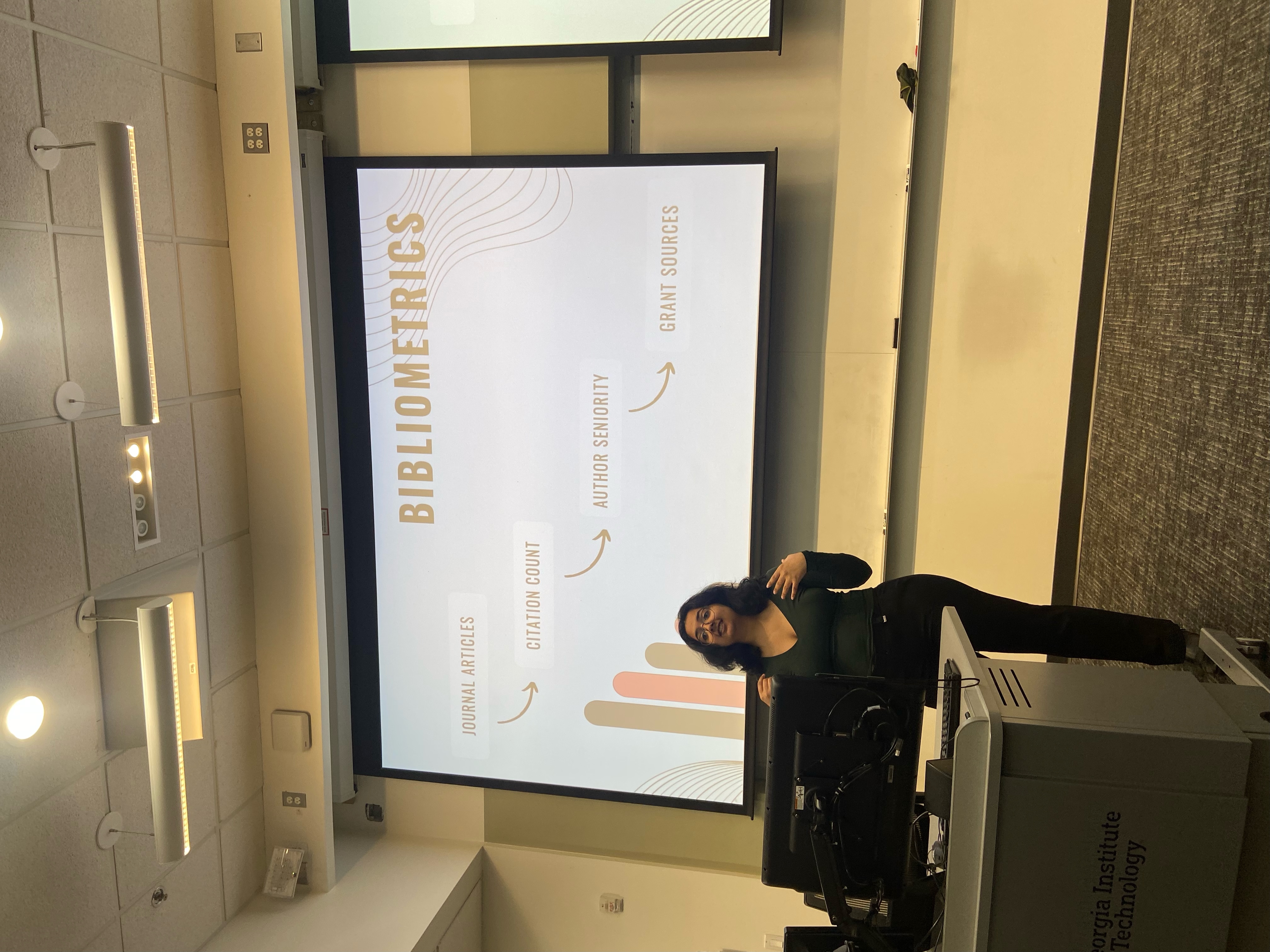Tia is a 4th-year Computer Science major studying bibliometrics from an intersectional approach with Dr. Annie Antón.
How long have you been an undergraduate researcher at Georgia Tech?
I have been conducting research at GT for three years. I started out in the Data Science and Policy Lab and moved into the Anton lab around a year and a half after. I have also made an effort to take classes for electives and even to fulfill my degree requirements that had opportunities to do research and could introduce me to tools that would improve my research skills.
How did you get involved with undergraduate research?
A professor I took a class with during my first semester recommended a lab for me to get involved in after we spoke about my interests. I applied and was able to work in that lab! That kickstarted my interest in research. From there, I talked more and more with upperclassmen about my interests and landed in my current lab. I highly recommend speaking to professors and peers directly in order to learn about research labs, and it is the best way to learn more about what research is happening in that department at Georgia Tech in general. I find our community to be extremely supportive and communicative, and I attribute my positions in labs to these qualities especially.
What are you working on?
I am conducting a bibliometric analysis of computer science research and analyzing how gender and race factor into the success of researchers in various subfields. For example, does the race or gender of an author correlate to the number of times their publication is cited? I designed this research project myself, and it started out from my interest in conducting research that incorporated both computer science and social science topics. My professor recommended I explore the topic of bibliometrics and speak with one of their colleagues at Georgia Tech who is also a renowned researcher of bibliometrics. This piqued my interest in the topic and brought me closer to forming my own questions. I knew I wanted to work at my own pace and explore a topic that interested me, so I began reading the literature in that field and taking note of what questions were not being answered. The gap I found led to the question I am now exploring – how does race and gender correlate to the productivity and accomplishments of an individual’s research in the discipline of computer science? At large, when we look at statistics to measure productivity of research, we refer to metrics such as “citation count.” The field of research dedicated to exploring these metrics and how they relate to the identities of authors is called bibliometrics.

What is your favorite thing about research/researching?
I love how the opportunity to find answers to questions of our interest falls into our hands through research. It feels similar to solving a mystery and fixing together pieces of a puzzle until the full picture comes together. I also deeply appreciate the fact that we can craft our own questions and dedicate our time in university to exploring a topic that truly resonates with us. Sometimes required courses and classwork doesn’t bring us close enough to the questions we had in mind when we chose a particular major. However, research – research gives us the chance to fulfill our personal curiosities and learn so many other skills along the way.
What are your future plans and how has research influenced them?
I plan to attend law school in Fall 2025 and study abroad at Oxford right before I graduate! I’m a excited to study abroad and tour Europe, and research has motivated me to make the most of my experience here at Georgia Tech. It’s showed me that so many interesting opportunities are within our reach and uniquely available to us. Research has also motivated me in my decision to pursue law school. As a future lawyer, I likely see myself looking to answers for interesting questions and investigating problems to a similar depth.
